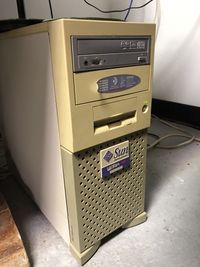Difference between revisions of "Yuna"
Jump to navigation
Jump to search
| Line 2: | Line 2: | ||
{| class="wikitable" | {| class="wikitable" | ||
! colspan="2" style="background:lightblue;width:200px;font-size:10pt" | | ! colspan="2" style="background:lightblue;width:200px;font-size:10pt" | Yuna | ||
|- | |- | ||
| colspan="2" style="text-align:center;font-size:7pt" | [[File: | | colspan="2" style="text-align:center;font-size:7pt" | [[File:Yuna.jpg|noframe|200px]]<br />Image caption | ||
|- | |- | ||
| colspan="2" style="background:lightblue;text-align:center;font-size:9pt" | Section<sub>A</sub> | | colspan="2" style="background:lightblue;text-align:center;font-size:9pt" | Section<sub>A</sub> | ||
Revision as of 14:27, 8 April 2019
This page is a stub. You can help by expanding it.
| Yuna | |
|---|---|
 Image caption | |
| SectionA | |
| FieldNameA1 | FieldParameterA1 |
| FieldNameA2 | FieldParameterA2 |
| FieldNameA3 | FieldParameterA3 |
| SectionB | |
| FieldNameB1 | FieldParameterB1 |
| FieldNameB2 | FieldParameterB2 |
This beauty of a system is the datashed systems and network administration workhorse. I acquired it ca. 2002 while working as a UNIX Systems Administrator Associate for Lockheed Martin. It was my main home computer for some time, a role in which it served me well.
I developed trapd and a bunch of goofy text-mode games on this in C, and it got me through a Modula-2 course.
Though it originally ran Solaris 8, I have since upgraded to Solaris 10--though I question exactly how well this qualifies as an "upgrade", given the decreased performance and lack of OpenWindows desktop. GNOME is completely unusable on such a slow system, but CDE is quite serviceable.